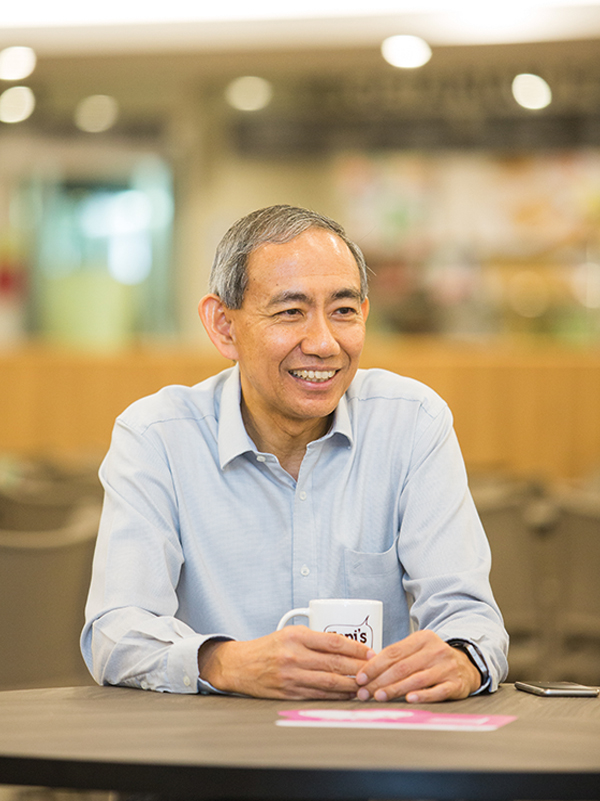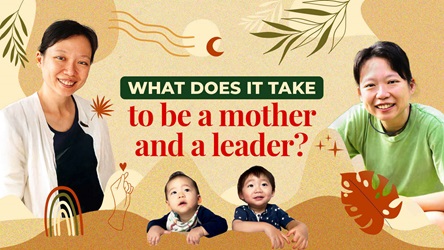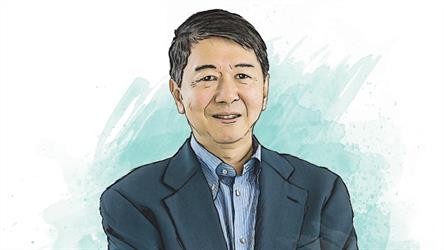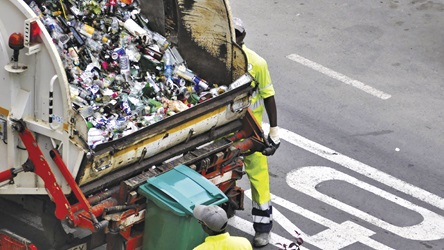Leadership Is Not About Commanding People, But Winning Their Hearts

Amid the bustle of the lunchtime crowd at the Environment Building canteen, a man is snapping a selfie in front of a newly installed tray-return area. It’s an unusual place for a photo, but even more unusual is who that person is: the Permanent Secretary (PS) of the Ministry of the Environment and Water Resources (MEWR), Mr Choi Shing Kwok.
Mr Choi, as it turns out, is quite a hand at social media posting. While he keeps a low profile on his personal social media accounts, he is undoubtedly the most active PS on Workplace, a private online platform that connects the Singapore Public Service. There, he regularly posts photos and selfies when on overseas visits and at events, and of interesting places.
His selfies are far from frivolous: each post is typically accompanied by a subtle message about sustainability and green habits.
It’s all about reaching out to and engaging with fellow public officers – PS Choi explains why he’s an avid user of Workplace by Facebook.
“With Workplace, my aim is to reach out to public officers and try to let them be excited about what we are doing in the environment ministry,” Mr Choi explains. “People respond much better and are also better engaged when there is humour or something to learn.”
At MEWR, he holds regular chats with staff to hear their views and feedback, and to better understand their motivations. “Leadership is not about commanding people, but winning their hearts,” he reflects.
“The ability to influence [both] directly and from a distance is important,” he continues. He draws an analogy to military leadership where there is a smaller, closer in-group, in which leadership is very direct, and a larger group that is farther removed. Mr Choi, who has held senior positions in the Ministry of Defence and the Army, says: “As a colonel or general, you don’t see the soldiers on the ground but they have to feel, respect and follow your leadership.”
MEWR is similar in its hierarchy. “MEWR is small [but] with large statutory boards… There is a need to reach the people in the statutory boards and the people on the ground. A different kind of leadership is required to motivate people who are more remote.”
One of the things Mr Choi highlights about his five-year tenure at MEWR is not policy, but partying. “What I’ve done is to transform the year-end staff function into a fun occasion where senior management put up a performance for the staff. We have good fun thinking up what to do, practising it and presenting it. And the staff enjoy it tremendously.” For him, it’s an important way to bring the MEWR family closer together.
What does it take to foster creativity and innovation at work? For PS Choi, it all goes back to asking ourselves, “Why?”
Disseminating messages to a much larger audience, such as the public, requires a lot more work – and far more channels, Mr Choi says. It is a challenge MEWR has been working on for some time now. “I believe that for us, if we could sit down with any group of Singaporeans, we would be able to convince them. But the problem is we don’t get that opportunity.
“We think that there is no single channel that can reach everybody, so we must pump it out in many ways through many channels. Each of those channels will reach some people and collectively, more people will be reached.”
As for messages that could be hard to swallow, he thinks public officers need to have the courage to explain why the bitter pill is necessary despite the backlash. To gain Singaporeans’ understanding of the 2017 water price hike, for instance, the MEWR team “tried very hard to explain why it is necessary”, says Mr Choi.
“Over time, more and more people come around to understanding why, and I think that will improve as we go on.”

The larger picture
Effecting change ultimately requires creating the right conditions. After all, Mr Choi observes, human behaviour is slow to change.
“We have changed a lot of things – technology, the global world order. But human nature, whether it’s 2,000 years ago, 4,000 years ago or today, is the same.” This knowledge seems to have afforded him the patience to accept that change takes time.
For example, why don’t Singaporeans clear their trays at hawker centres and food courts despite ongoing campaigns? Habit, says Mr Choi. “Simply because it’s not been done before and it’s a new behaviour we are trying to cultivate,” he says matter-of-factly. “Human beings are just human beings – when we are set in a particular habit, it takes an effort to change to a new one.”
The new tray-return system at the Environment Building, for instance, was initiated to create a norm of getting customers to return trays and separate food waste, and even sort out the cutlery.
PS Choi shares how a few simple changes to MEWR’s tray-return system have helped to promote a more gracious and considerate culture.

He points out a similar effect in getting people to queue in MRT stations, where – despite drawing lines on the platform and numerous campaigns – it struggled to take hold.
“Eventually what happened was that it just took root in one station, Bishan MRT station. Suddenly enough people wanted to do it there and then everyone started to do it. And then from there it spread to other stations and today everybody queues,” says Mr Choi, who was previously PS of the Ministry of Transport.
It comes down to finding the tipping point, and to “keep plugging at it” with the right design and consistent messaging across different channels so that the positive behaviours eventually stick. And this applies to issues big and small, whether it is about clearing trays, queuing for the MRT train, recycling, or even tackling climate change.
More than merely nurturing green or gracious behaviour, for Mr Choi, it is about building a better country to live in. And he believes this should be a priority for all public agencies. “The whole of government needs to build the Singapore society... It is about the consideration people show for each other so that we have a better society. It will be in these everyday situations that this will be lived out.”
PS Choi on the benefits of having good work-life balance.

What’s in your cuppa?
Espresso with milk and a little sugar.
How often do you have it?
Once in the morning at home and once in the afternoon.
- POSTED ON
Aug 2, 2017
- TEXT BY
Sheralyn Tay
-
Deep Dive
Singapore Agenda: The End Of Waste?









